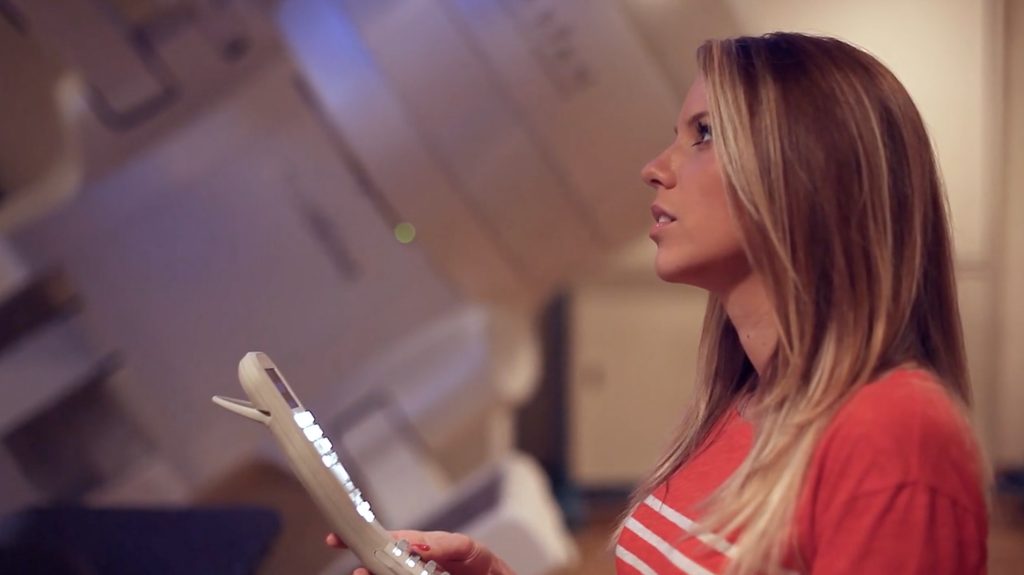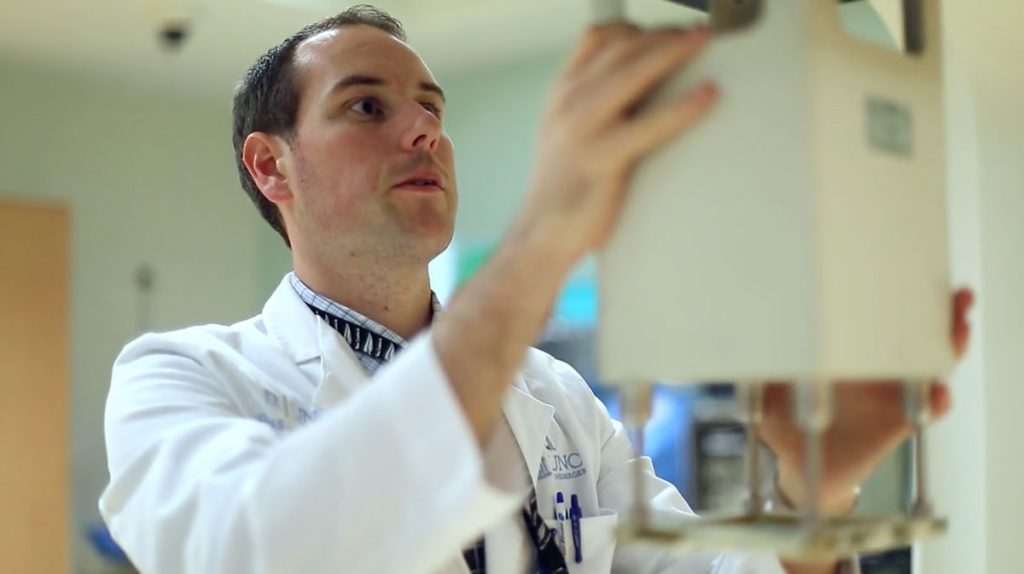A Distinct Field
Medical physics is a distinct field of its own, built upon a foundation of physics but focusing on application to medicine. Medical physics provides the technical foundations of radiology, radiation oncology, nuclear medicine, and radiation safety. In fact, our program is one of the few that offers “tracks” to focus on all four of these major areas of medical physics. What can you do with a degree in medical physics? Our alumni have found success in many fields, including clinical physics, further graduate training, industry, and academia.

Medical Physics is:
- Defined as the application of physics to the needs of medicine
- Launched by 2 Nobel prizes in physics; subsequently 2 Nobel prizes in Medicine or Physiology
- Responsible for the technical foundations of radiology, radiation oncology, and nuclear medicine
- Built on foundation of physics, but with distinct body of knowledge and scholarship
- Distinct from biophysics
- Incorporates both theoretical and experimental methods, but inherently an applied discipline
For more information, we recommend the American Association of Physicists in Medicine (AAPM) Public Education Website, which addresses issues like: what is a medical physicist, the role s/he plays in radiation therapy and diagnostic medical imaging, history of medical physics, etc.

Career Opportunities In Medical Physics
Graduates trained in Medical Physics enjoy a wide variety of employment opportunities, including academic, research and clinical paths. See student stats to learn where our alumni have gone after they graduated.
Students at the Ph.D. level with interest in academic careers will find jobs as faculty members in departments of Medical Physics, Radiology, Radiation Oncology, Nuclear Medicine, Physics or Nuclear Engineering. Additionally, Ph.D. graduates may be employed in government labs or in industry. Ph.D. students trained with a specialty in Health Physics may find employment as Radiation Safety Officers at universities or large laboratories, or they may be employed as faculty in Health Physics training programs.
In addition to the academic and research job opportunities for Medical Physics graduates, there is also the career path of clinical physicist. Every hospital and clinic that uses radiation requires the services of individuals trained to maintain the diagnostic and therapeutic equipment needed to serve patients. Medical Physicists in Radiation Oncology also participate directly in clinical service by performing treatment planning for patients according to the treatment regimen prescribed by the Radiation Oncologist. Clinical physicists may be employed at the M.S. or Ph.D. level. The Duke Medical Physics Program would provide the specialized training necessary for graduates to become board-eligible clinical physicists if they so choose.
For more general information, we recommend the AAPM Career Services Website.
